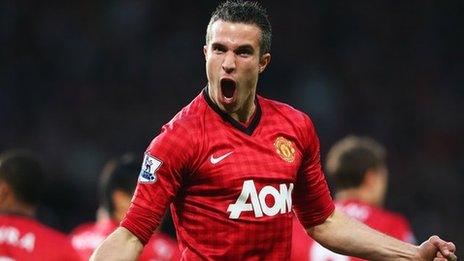Sir Alex Ferguson: Man Utd boss adapts to fresh challenges
- Published
- comments
Sir Bobby Charlton hails 'greatest manager there has ever been'
Sir Bobby Charlton described Sir Alex Ferguson as the "greatest manager there's ever been". After 13 Premier League titles and 49 trophies, it's hard to argue with the other great knight of Old Trafford.
At the age of 71 it is inevitable that Ferguson's latest - and in many ways most impressive championship campaign - will prompt another round of questions about his long-term future at Manchester United.
But those who know him talk of his competitiveness and his relentless desire to carry on. One only has to look at his delight following Monday's victory over Aston Villa to see he gets the same buzz from winning now as he did when he landed his first Premier League title back in 1993.
In his insightful interview with the BBC's Gordon Burns in September 2011, Ferguson revealed what makes him tick when he talked about his players displaying the same characteristics as him.
"Obsessive, driven, don't like losing..." There in a nutshell is the Ferguson mantra.
The other ingredients, sources say, are his ability to know when and how to refresh his teams and, of course, his great longevity.
"I've got time on my side always," he told Burns. "It's always a problem in modern management, guys are in position for a year and they get sacked. Well, no-one talks about sacking Alex Ferguson." While no-one at Old Trafford dare consider the moment he decides to go, the idea of it ever being enforced is completely unthinkable.
But there are other elements worth considering.
Look at how adaptable Sir Alex Ferguson has been over the years. During his time as manager, United have gone from being an English footballing institution to a global phenomenon. When he was winning his first titles the club were listed on the London stock market, the driving force behind football's economic boom of the 1990s.
Now they are a world famous sports brand, owned by a secretive American family with their shares traded in New York. Throughout all of that - and the difficult early years of the Glazers' debt-funded takeover - Ferguson has somehow ensured that the football side of the business remains sacrosanct, ring-fenced from the different business models.
In the summer there will be another change at the top when Ed Woodward takes over the day-to-day running of Old Trafford from outgoing chief executive David Gill. Gill's relationship with Ferguson was very close and it will be interesting to see how he gels with Woodward.
But whoever the chairman, chief executive or owner is, they have all learned very quickly that United are a far less valuable product without their record-breaking manager.
While his ability to deal with changes in the boardroom has been remarkable, sources at the club tell me his real gift is adapting to the huge changes in football. Ferguson started managing in an era when players and their agents were nowhere near as dominant as they are now.
Manchester United boss Sir Alex Ferguson hails 'phenomenal' title
Somehow he has kept up with the trends and the challenges and continued to motivate his multi-millionaire players - even when they earn several times the amount he does.
When City pipped United to the title last season it looked like a major shift in the balance of power. How short sighted that now seems.
In fact the introduction of Financial Fair Play regulations - both domestically and in Europe - could strengthen United's hand. The rules have been set up to restrict clubs like City and Chelsea from continuing to invest in expensive talent by running huge losses bankrolled by wealthy benefactors.
United might be heavily in debt, but they have a hugely successful commercial operation and the new TV deals, which start next season, will only make them more profitable.
That will be a crucial factor as Ferguson considers whether to use that advantage and strengthen his team in the summer.
Because for all of his talk of this being one of his greatest sides, this has not been a vintage team or a vintage Premier League campaign. One only has to look at English teams' performances in Europe to spot that the Premier League is in danger of falling behind Spain and Germany.
More success in Europe is widely believed to be the driving force behind Ferguson's desire to carry on after all these years.
Deep down he probably knows he needs to refresh and strengthen his team once again if he is to stand a chance of matching the record he covets most - Bob Paisley's record of three European Cups.
- Published23 April 2013
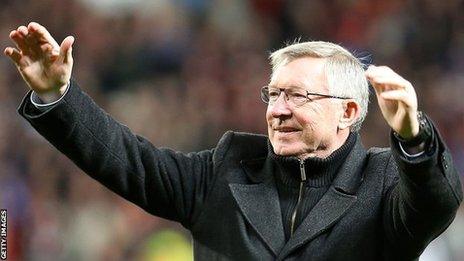
- Published23 April 2013
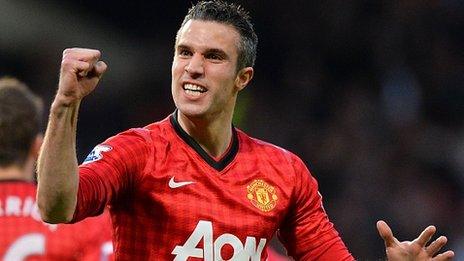
- Published23 April 2013
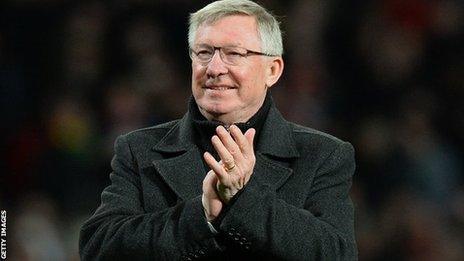
- Published23 April 2013
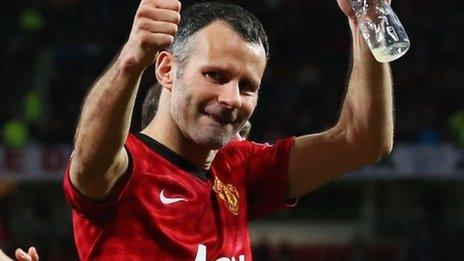
- Published22 April 2013
